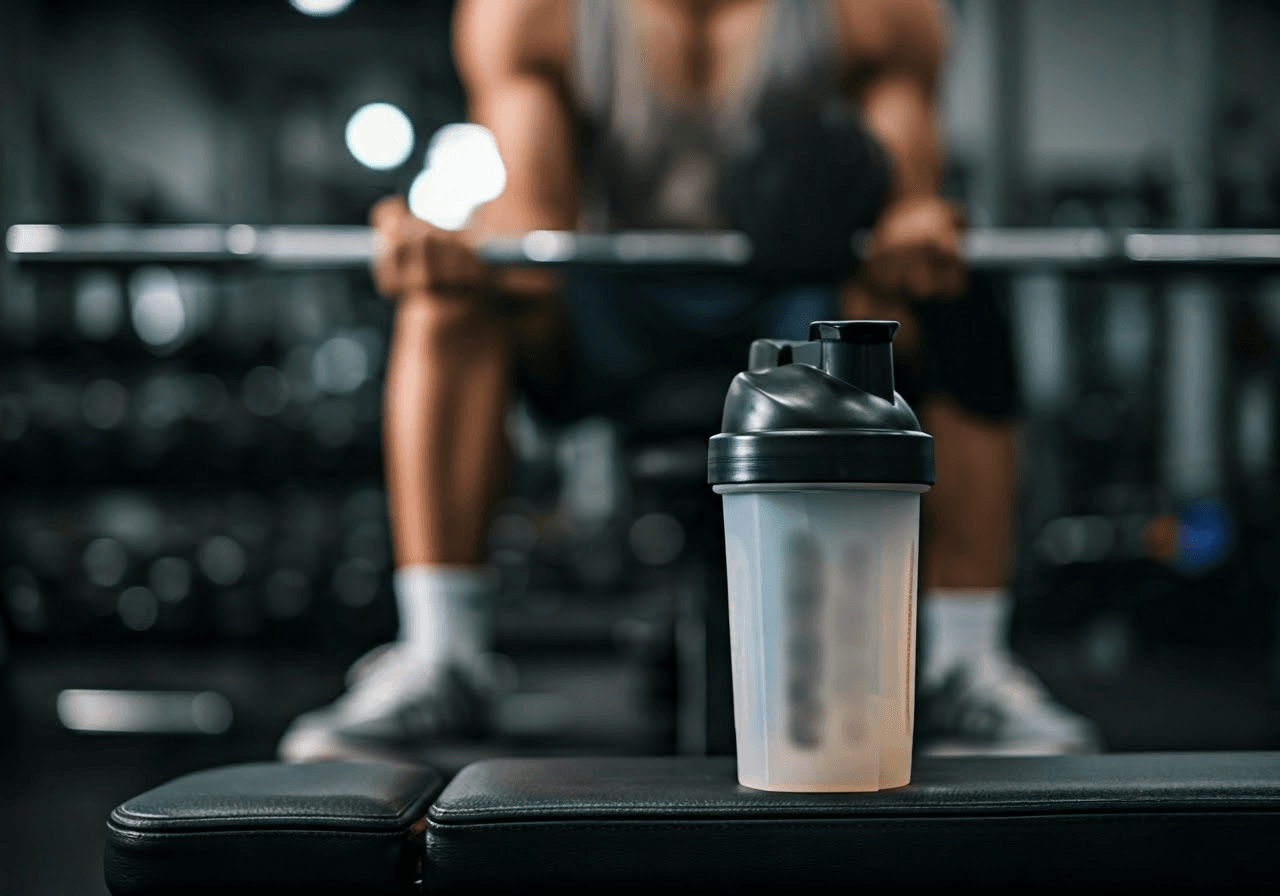
What Is Protein Powder and How Is It Made?
Protein powder is a dietary supplement that comes from concentrated protein. It can be made from dairy, plants, or eggs. Protein powder helps you meet your daily protein intake needs. It supports muscle growth, helps with weight management, and boosts overall health. You can find it in many flavors. People often mix it into shakes or add it to meals to improve nutrition.
Protein powder is usually made from ingredients like milk (whey and casein), peas, or soybeans. The ingredients are filtered and dried to get pure protein. Now, let’s look at their benefits and how they are made.
What Is Protein Powder and Why Use It?
Protein powder is a strong source of important amino acids. These amino acids help your body function and keep your muscles strong. If you want to grow your muscles, increase your protein intake, or manage your weight, protein powder can fit your needs.
For building muscle, taking protein powder after your workout gives your body the amino acids it needs to heal and recover. This helps reduce soreness and improve performance. Weight management is also a big advantage because protein can help control hunger while keeping muscle mass during fat loss.
Even if you get your needed nutrients from food, protein powder can help. This is especially true for athletes, vegetarians, and vegans. Because of its many uses, protein powder is becoming more popular in fitness and nutrition.
How Is Protein Powder Made? From Source to Supplement
Protein powder starts with picking good sources of protein. This can be milk for whey and casein or plant-based options like peas, soy, or hemp. These ingredients go through a manufacturing process to isolate the protein and keep its nutritional value.
After the source is processed, the liquid protein is filtered to get rid of things like fat and carbohydrates. For whey protein, methods such as microfiltration and ultrafiltration help achieve high purity. Then, the protein is dried into a powder and packaged.
It is important to choose options that are certified by groups like the Clean Label Project. This helps you avoid contaminants such as heavy metals and artificial additives. Good production standards make sure your protein supplement is safe and effective to use.
Common Protein Powder Sources: Whey, Plant-Based, and Egg
Protein powders come from different sources to meet individual diet choices and nutrient needs. Here are the common options:
- Whey Protein: This comes from milk. It has essential amino acids and is quickly taken in by the body. It’s perfect for muscle recovery and growth.
- Plant-Based Protein: This is made from soy, peas, rice, and hemp. It’s high in fiber and works well for vegetarians and vegans.
- Egg Protein: This comes from egg whites. It has very little fat and is good for anyone who is sensitive to dairy.
Each type has its own advantages. For example, whey is excellent for post-workout recovery. Plant protein is a great sustainable option, and egg protein is good for people managing dietary fats. Choosing the right one depends on your goals and what you prefer to eat.
Here’s a quick comparison of popular protein sources—from dairy to plant-based and egg. Use this table to easily find the type that best supports your fitness and nutrition goals.
| Protein Source | Origin | Complete Protein? | Key Benefits | Best For |
|---|---|---|---|---|
| Whey Protein | Milk (Dairy) | Yes | Fast absorption, rich in EAAs & BCAAs, excellent for muscle growth | Post-workout, muscle gain |
| Casein Protein | Milk (Dairy) | Yes | Slow-digesting, sustained amino acid release | Night recovery, satiety |
| Soy Protein | Soybeans | Yes | Plant-based, complete amino profile, heart health benefits | Vegans, vegetarians, hormone support |
| Pea Protein | Yellow Peas | Nearly | Hypoallergenic, high BCAAs, easily digestible | Sensitive stomachs, muscle recovery |
| Rice Protein | Brown Rice | No | Gluten-free, easy digestion, low allergen profile | Beginners, sensitive digestion |
| Hemp Protein | Hemp Seeds | No | Contains omega-3s, anti-inflammatory properties, fiber-rich | Heart health, clean eating |
| Egg White Protein | Egg Whites | Yes | Dairy-free, high bioavailability, low fat | Lactose-intolerant users, clean diets |
| Blended Plant Protein | Mixed Plant Sources | Yes (when combined) | Balanced amino acids, improved taste & texture | Vegans seeking complete protein |
Types of Protein Powder Explained
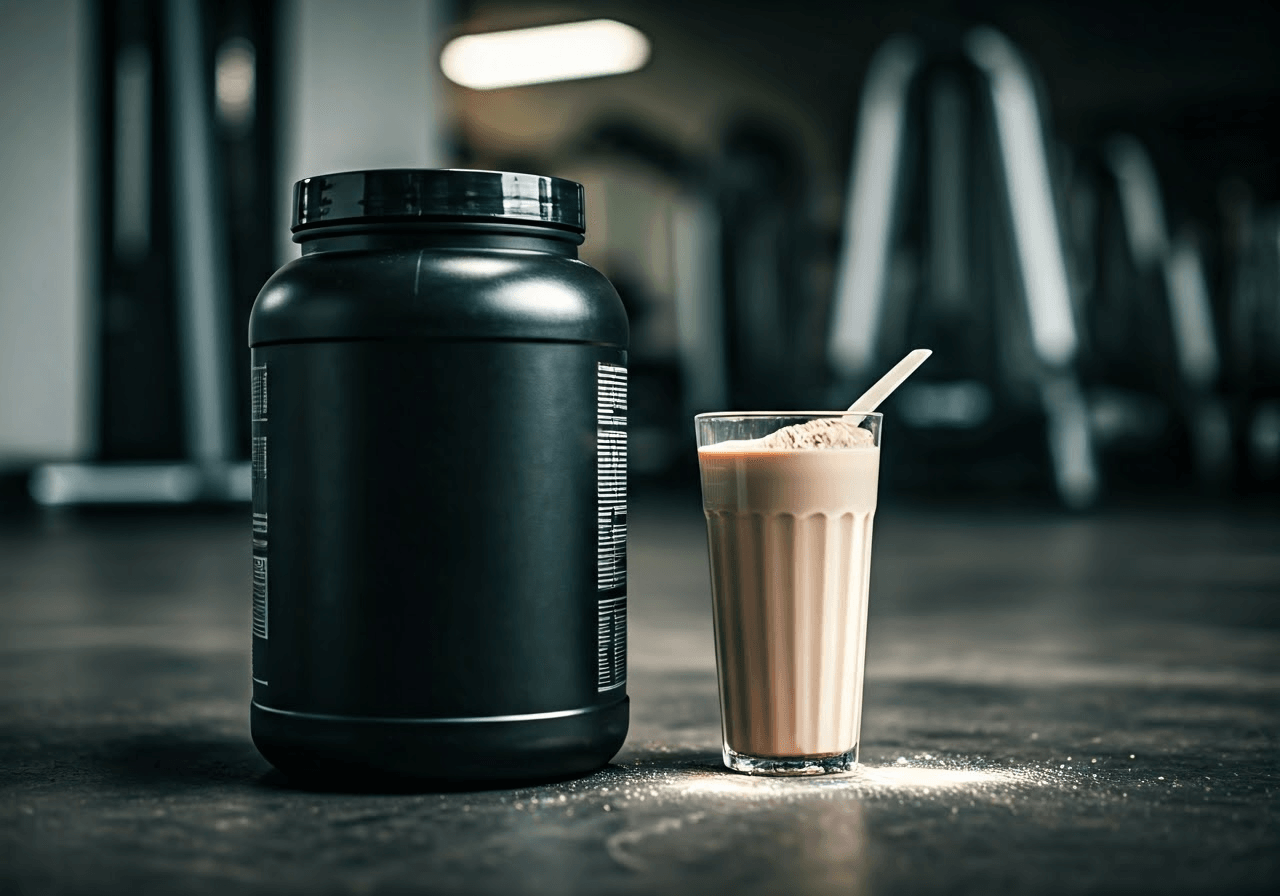
Protein powders come in different types, each designed for particular needs. Whey is popular because it absorbs quickly. Casein, on the other hand, helps with muscle recovery over time. There are plant-based options like soy and hemp for vegans. Collagen is good for skin and joint health.
Blended protein powders mix different sources to provide a better range of amino acids and to fit various diet goals. With so many choices, it is important to choose the right type of protein powder for your personal health and fitness goals. Now, let’s look at some popular types.
Whey Protein Types: Concentrate, Isolate & Hydrolysate
Whey protein comes in three main types: whey concentrate, isolate, and hydrolysate. Each type has its own benefits based on your fitness goals and budget.
Whey Concentrate has about 70% to 80% protein, plus some carbs and fat. It is affordable and very nutritious, which makes it a favored choice. If you want a cleaner protein, Whey Isolate has over 90% protein and very little lactose. It is great for people who are slightly lactose intolerant or need to watch their calories.
Whey Hydrolysate goes through extra processing. This breaks the protein into smaller pieces for quicker absorption. Many athletes choose this type for fast recovery. Your choice of whey protein will depend on what you want, whether it’s basic muscle health or improving your performance.
Table: Comparison of Whey Protein Types
| Type of Whey Protein | Protein Content (%) | Lactose Level | Absorption Speed | Ideal For | Price Range |
|---|---|---|---|---|---|
| Whey Concentrate | ~70–80% | Moderate | Moderate | Beginners, General Nutrition | $ |
| Whey Isolate | ~90%+ | Low | Fast | Weight Loss, Low-Carb Diets, Lactose Sensitivity | $$ |
| Whey Hydrolysate | ~90%+ | Very Low / Trace | Very Fast | Athletes, Post-Workout Recovery | $$$ |
Casein Protein: Slow-Digesting Recovery Fuel
Casein protein is a type of dairy protein that digests slowly. It slowly releases amino acids, making it great for recovery at night. This helps repair muscles while you sleep and keeps muscle mass.
The slow digestion of this protein helps keep a steady protein intake for hours. This is especially useful for people who have long fasting times or are at risk of losing muscle. When you mix casein with whey, it also helps boost recovery after workouts.
If you want to recover muscles well or follow strict workout plans, casein is very important. It supports muscle repair while you rest. Adding casein to your protein routine gives you nourishment all day and night.
Plant-Based Protein Powders: Soy, Pea, Rice, Hemp
Plant-based protein powders are getting more popular because they are good for both the Earth and our health. Soy Protein is important as it has all the essential amino acids needed for muscle repair and growth.
Pea Protein is easy to digest and has a lot of branched-chain amino acids. This makes it helpful for muscle recovery. Rice Protein does not offer all the nutrients alone but works well with other plant proteins, like pea, to provide balanced nutrition. Hemp Protein is known for its omega-3 fatty acids and high fiber content.
When you mix different plant protein sources, you can create a complete amino acid profile. This is great for people who are vegan or vegetarian. With these options, plant-based protein powders meet various dietary needs and help achieve different fitness goals.
Table: Comparison of Common Plant-Based Protein Powders
| Criteria | Soy | Pea | Rice | Hemp |
|---|---|---|---|---|
| Complete Protein? | Yes | Nearly | No | No |
| Digestibility | High | High | Moderate | Moderate |
| Fiber Content | Moderate | Low | Low–Moderate | High |
| Key Benefits | Complete amino profile, Rich in BCAAs | Hypoallergenic, High in Iron & Arginine | Gentle on Digestion, Gluten-Free | Contains Omega-3s, Anti-inflammatory |
| Best For | Muscle Building, Meal Replacement | Recovery, Sensitive Stomachs | Beginners, Digestive Issues | Heart Health, Plant-Based Diets |
Egg White Protein: High-Quality, Low-Fat Option
Egg white protein is a great choice for anyone wanting high-quality protein without extra fat. It has all nine essential amino acids, which makes it a complete protein. This is good for muscle repair and recovery.
This low-fat option is perfect for those watching their calorie intake or sticking to a clean diet. Plus, egg white protein is dairy-free, so it is a good option for people who are sensitive to lactose. It is also easy to digest, making it gentle on the stomach.
Since it is rich in bioavailable amino acids, egg white protein supports muscle growth. It fits easily into different diets, whether you are focused on fitness or managing your weight.
Other Protein Powders: Collagen, Blends & Alternatives
Additional protein choices include Collagen. This type helps support skin, nails, and joint health. Another choice is Protein Blends. These mixes combine different sources for a well-rounded nutrient profile.
Collagen protein is particularly helpful for older adults or anyone healing from injuries. It gives important amino acids that help strengthen connective tissues. Protein blends are flexible. They can help with goals like weight loss or muscle gain and can enhance flavor and texture.
Other options, like cricket or bone broth protein, are becoming popular. They focus on sustainability and a variety of nutrients. These choices make it easier for everyone to add protein to their diets, no matter their food restrictions.
Protein Powder Benefits: Muscle Gain, Weight Loss & More
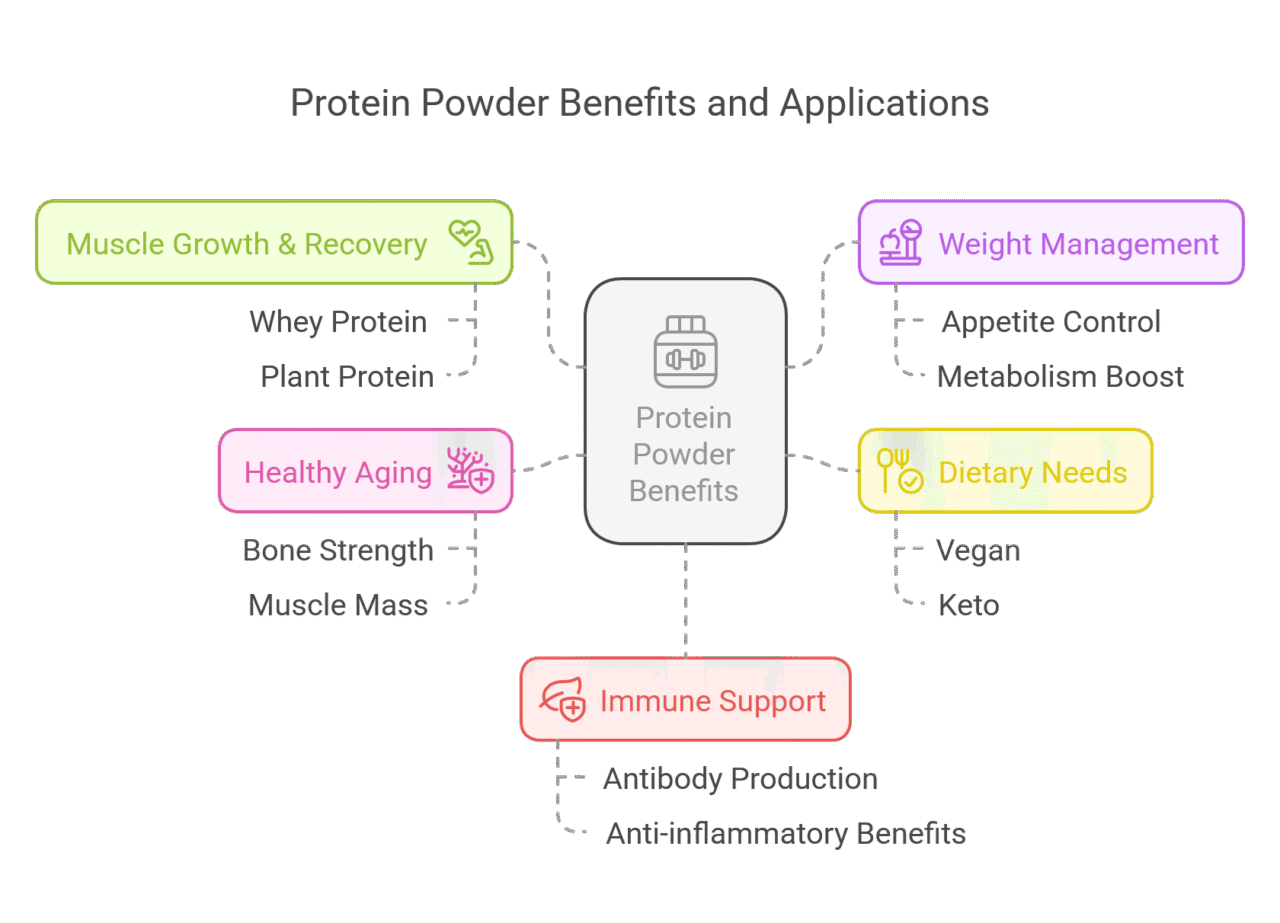
Incorporating protein powder into your diet has many benefits. It greatly helps with muscle growth. With more protein intake, recovery gets better, and soreness after exercise is reduced. If you are managing your weight, protein powder can help control your appetite and boost your metabolism. This makes it easier to achieve your weight loss goals. Protein supplements are also good for different dietary needs, like vegan and keto diets. Besides helping muscle and weight loss, it supports your overall health. It helps keep your bones healthy and supports your immune function with essential amino acids.
Build Muscle and Recover Faster with Protein Powder
Adding protein powder to your post-workout routine can really help your muscles recover and grow. For best results, choose options like whey or plant protein. They have essential amino acids that are important for fixing muscle tissue. Experts say you should try to eat about 20-30 grams of protein after exercise, and do it within 30 minutes. This will help your body take in protein and build muscle better. Using protein shakes or smoothies is an easy way to meet your protein needs and support your overall health effectively.
Post-Workout Protein for Muscle Recovery & Less Soreness
After exercise, getting the right amount of protein is very important for muscle recovery and less soreness. Eating a good source of protein, like whey or plant protein, gives your body the essential amino acids it needs to fix muscle fibers. Research shows that having a protein shake after your workout can really help in recovery by boosting muscle protein synthesis. Try to consume about 20-30 grams of protein within two hours after you exercise. This way helps reduce soreness and also supports muscle growth and metabolism, which are important for effective training.
Lose Weight with Protein Powder: Appetite Control Benefits
Adding protein powder to your diet can help you lose weight by controlling your hunger. Protein can make you feel fuller, which means you will eat fewer calories overall. This is especially true for pure protein sources like whey and casein. They have essential amino acids that help your metabolism stay healthy. If you are vegan, you can try plant-based options like pea protein or hemp protein. These are good choices for keeping your muscles strong while managing your weight.
Protein for Vegan, Keto & High-Performance Diets
A variety of protein powders is available for different diets like vegan, keto, and for athletes. Vegans can use plant-based protein sources like pea protein and hemp. These provide essential amino acids that help with muscle growth and recovery while ensuring good protein intake. People on a keto diet may prefer whey protein or casein because they are low in carbs and full of pure protein. Athletes often choose special blends that help boost metabolism and support overall health. These blends offer necessary nutrients for better physical performance without artificial flavors or extra additives.
Support Healthy Aging: Protein for Bones and Muscles
As people get older, keeping muscle mass is very important for good health. Getting enough protein is key, especially from quality sources like whey or plant protein. Essential amino acids help strengthen bones and lower the chance of fractures. Including protein-rich foods like legumes, poultry, and dairy in meals can aid muscle recovery and improve metabolism. Regular resistance training, along with the right protein intake, helps promote healthy aging. This ensures that people stay independent in their later years.
Boost Immunity and Healing with Protein Supplementation
A strong immune system needs enough protein. Protein helps make antibodies and important amino acids that are vital for how our immune system works. Using protein supplements can help you recover and improve your health, especially when you are stressed or sick. For example, whey protein has immunoglobulins that support your immunity. Also, plant-based proteins like hemp and pea protein have anti-inflammatory benefits that can aid in healing. By getting enough protein from different sources, people can improve their overall health and stay strong.
Is Protein Powder Safe for Daily Use?
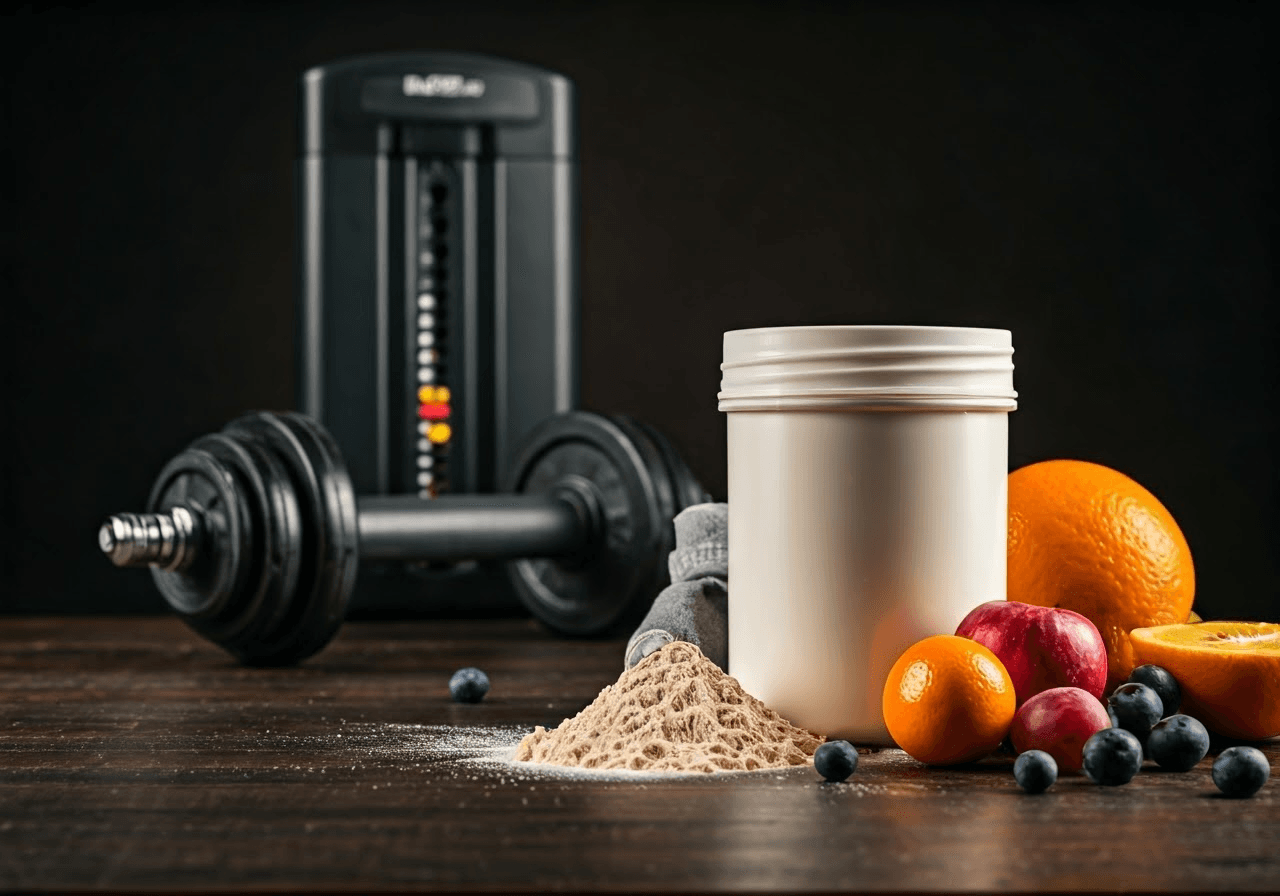
Most protein powders are safe to use every day as long as you stick to the serving sizes. It’s important to pick good-quality products. If you have health issues or certain dietary needs, talk to a healthcare professional. This way, you can make sure the protein powders fit with your health goals.
How Much Protein Powder Should You Take Daily?
The amount of protein powder you take each day depends on your goals, how active you are, and your diet. For most people, a serving of 20-30 grams works well. It’s important to talk to a healthcare expert or nutritionist for advice that fits your specific needs.
Is Long-Term Use of Protein Powder Safe?
Using protein powder for a long time is usually safe for most people when taken in the right amounts. But if you have certain health problems or dietary limits, it’s important to talk to a healthcare professional. This way, you can make sure it’s good for you and avoid any possible negative effects.
Who Should Avoid or Limit Protein Powder?
People with kidney problems or certain health issues should reduce their protein powder intake. Pregnant or breastfeeding women, and those taking specific medications, need to talk to their healthcare professionals before using it. Also, people with allergies to protein sources should pick alternatives with care.
How to Choose the Best Protein Powder for Your Goals
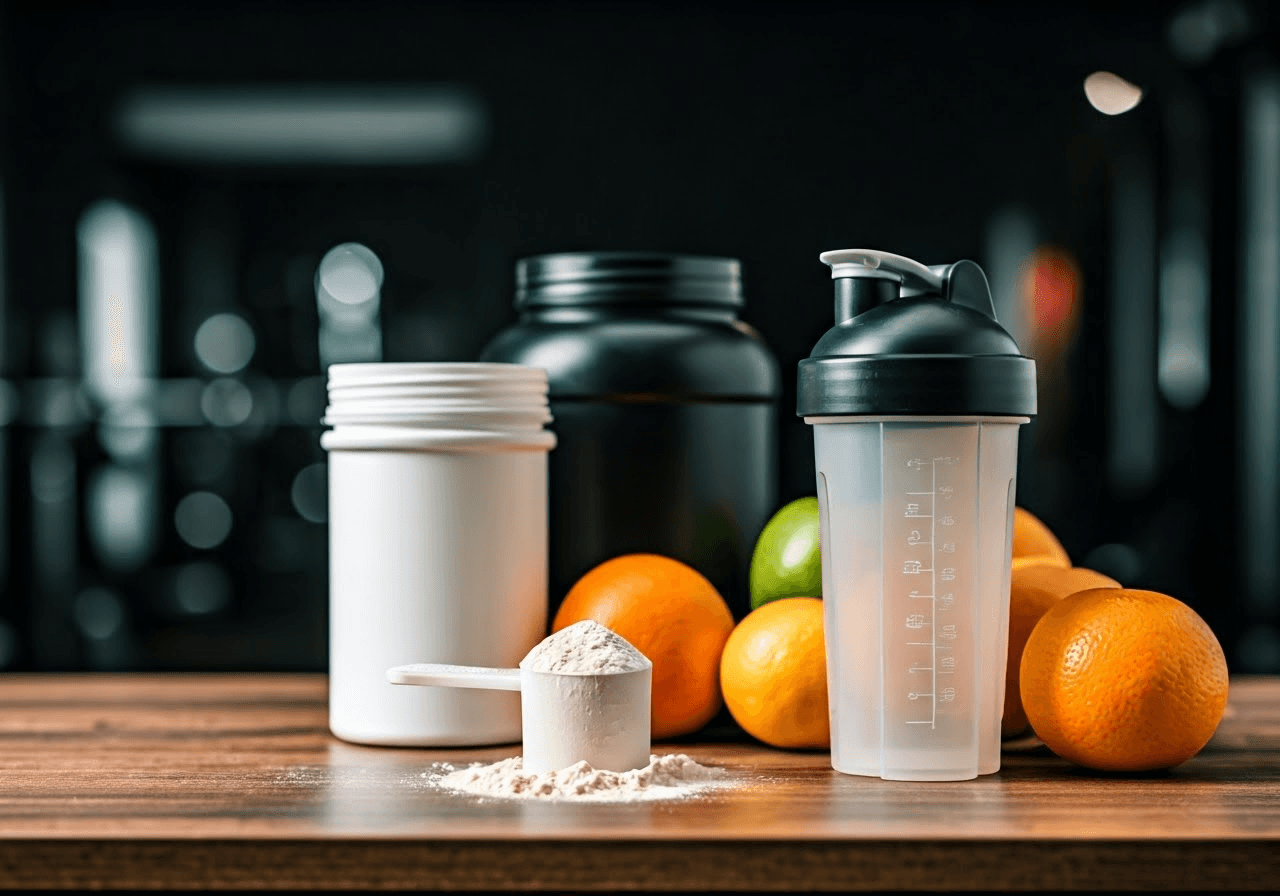
Choosing the right protein powder depends on your fitness and diet goals. If you want to build muscle, whey and casein proteins are great choices. They have a high biological value and provide essential amino acids quickly. If you prefer plant-based options, pea and hemp protein are good for vegans or people with lactose issues. Always look for clean-label certifications to avoid harmful additives and heavy metals. To get the best protein intake, understand your body’s needs. Aim for 1.6 to 2.2 grams of protein per kilogram of body weight. This will help you optimize your protein intake.
Table: Best Protein Powder by Goal and Lifestyle
| Goal / Lifestyle | Recommended Protein Type | Key Benefits | Usage Notes |
|---|---|---|---|
| Muscle Building | Whey Isolate / Hydrolysate | Fast absorption, High in Leucine & BCAAs | Take post-workout for best results |
| Weight Loss | Casein / Pea Protein | Appetite control, Slow digestion | Use as a low-calorie meal replacement |
| Vegan | Pea + Rice or Hemp | Complete amino acids, 100% plant-based | Combine multiple sources for full profile |
| Lactose Intolerant | Whey Isolate / Plant-Based (Pea, Rice) | Low or no lactose, gentle on digestion | Look for “lactose-free” or “dairy-free” labels |
| Budget-Friendly | Whey Concentrate / Soy | Cost-effective, Good protein-per-dollar ratio | May contain more carbs and fats |
| Older Adults (40+) | Casein / Collagen + Pea | Supports bone health, muscle preservation | Ideal for overnight use or joint support |
| Meal Replacement | Soy / Casein + Fiber-Enhanced Blends | Sustained energy, Satiety, Nutrient-rich blends | Look for added vitamins and low sugar |
Choose Protein Powder Based on Your Fitness and Diet Goals
Choosing the right protein powder depends on your fitness and diet goals. If you want to build muscle, whey protein is a great choice. It’s known for having many amino acids and absorbs quickly, making it ideal for post-workout recovery. If you live a vegan lifestyle, plant-based powders like pea protein and hemp offer essential amino acids without any dairy. If you are looking to manage your weight, you might prefer protein powders with few additives and natural flavors to help keep you full. Picking the right option will help you get the most benefit for your personal goals.
Whey vs Plant-Based Protein: Which One Is Best for You?
When you are picking between whey and plant-based protein, think about what you like to eat, how well you digest food, and your fitness goals. Whey is quick to absorb and great for muscle recovery. On the other hand, plant-based proteins are good if you do not want animal products. Look at your nutritional needs to help you make the right choice.
Table: Whey vs. Plant-Based Protein
| Feature | Whey Protein | Plant-Based Protein (General) |
|---|---|---|
| Source | Milk (Dairy) | Plants: Peas, Soy, Rice, Hemp, Seeds, Blends |
| Complete Protein? | Yes (all 9 essential amino acids) | Varies: Soy, Quinoa, Hemp are complete; Pea is nearly complete; Rice is incomplete. Blends often are complete |
| Absorption Rate | Fast (especially Isolate & Hydrolysate forms) | Moderate to slow, depending on the source and fiber content |
| Key Amino Acids | High in Leucine and BCAAs (great for muscle growth) | Varies: Pea and Soy offer solid BCAAs; other sources may lack some EAAs |
| Common Allergens | Dairy, lactose (mostly in Concentrate) | Soy, gluten (in some grains), nuts (in blends), potential cross-contamination |
| Digestibility | High for most; Isolate better for lactose sensitivity | Varies: Pea is well-tolerated; Soy and grains can cause issues for some; fiber affects digestion |
| Sustainability | Higher environmental footprint (dairy farming) | Lower environmental impact; plant-based production is more sustainable |
| Taste/Texture (General) | Creamy, smooth; slightly sweet if lactose present | Earthier, sometimes gritty or chalky; varies by source and brand |
| Best For | Muscle gain, fast recovery, those without dairy sensitivities | Vegans, vegetarians, lactose intolerance, sustainability-conscious consumers |
| Considerations | Choose Isolate or Hydrolysate for lactose intolerance. Look for grass-fed or third-party tested products | Look for blends with complete amino acid profiles; check for allergens and third-party certifications |
Best Protein Powder Without Artificial Sweeteners
Choosing a protein powder without artificial sweeteners can really improve your overall health. Look for ones that use natural flavors like vanilla or cocoa. Make sure they have a clean label without additives and heavy metals. It’s important to pick products with good sources of protein, like whey or pea protein. These options provide essential amino acids but have little to no extra sugars. Also, check for certifications. These help you find trustworthy brands focused on purity and quality.
Top Clean Label Protein Powders and Certifications to Trust
Choosing clean label protein powders is a good way to get a quality product. These powders do not have harmful additives or artificial flavors. It’s smart to look for certifications from trusted groups like the Clean Label Project. They test for heavy metals and other harmful substances. Other useful certifications include NSF Certified for Sport or Informed-Sport, which show that the powder has been tested for purity. Many people choose whey protein, but there are also good plant-based options like pea protein and hemp. These choices give you different sources to fit your dietary needs.
Budget vs Premium Protein: What’s Actually Worth the Price?
When you look at budget and premium protein powders, think about the quality of ingredients and their nutritional value. Check for any certifications too. Premium products might taste better and have fewer additives. However, budget brands can still give you essential nutrients. In the end, pick the one that fits your diet and lifestyle goals the best.
Not sure if premium protein powder is worth the extra cost?This quick comparison highlights the key differences in quality, ingredients, and value between budget and premium options — so you can choose what fits your goals and wallet.
| Feature | Budget Protein | Premium Protein |
|---|---|---|
| Protein Purity | ~70–80% | 90–95% or higher |
| Additives | Often includes fillers, artificial flavors, thickeners | Minimal ingredients, often clean-label certified |
| Taste & Texture | Basic, may be chalky or overly sweetened | Smoother, better flavor profile, natural sweeteners |
| Digestibility | May cause bloating or gas in sensitive users | Easier to digest, often includes digestive enzymes |
| Certifications | Rare, limited quality control | NSF Certified, Informed Sport, Organic, Non-GMO, etc. |
| Third-Party Testing | Often not disclosed | Frequently tested for purity, heavy metals, banned substances |
| Source Transparency | Generic blends, limited origin info | Branded ingredients, traceable sourcing |
| Price (per serving) | $ | $$$ |
How to Use Protein Powder Effectively
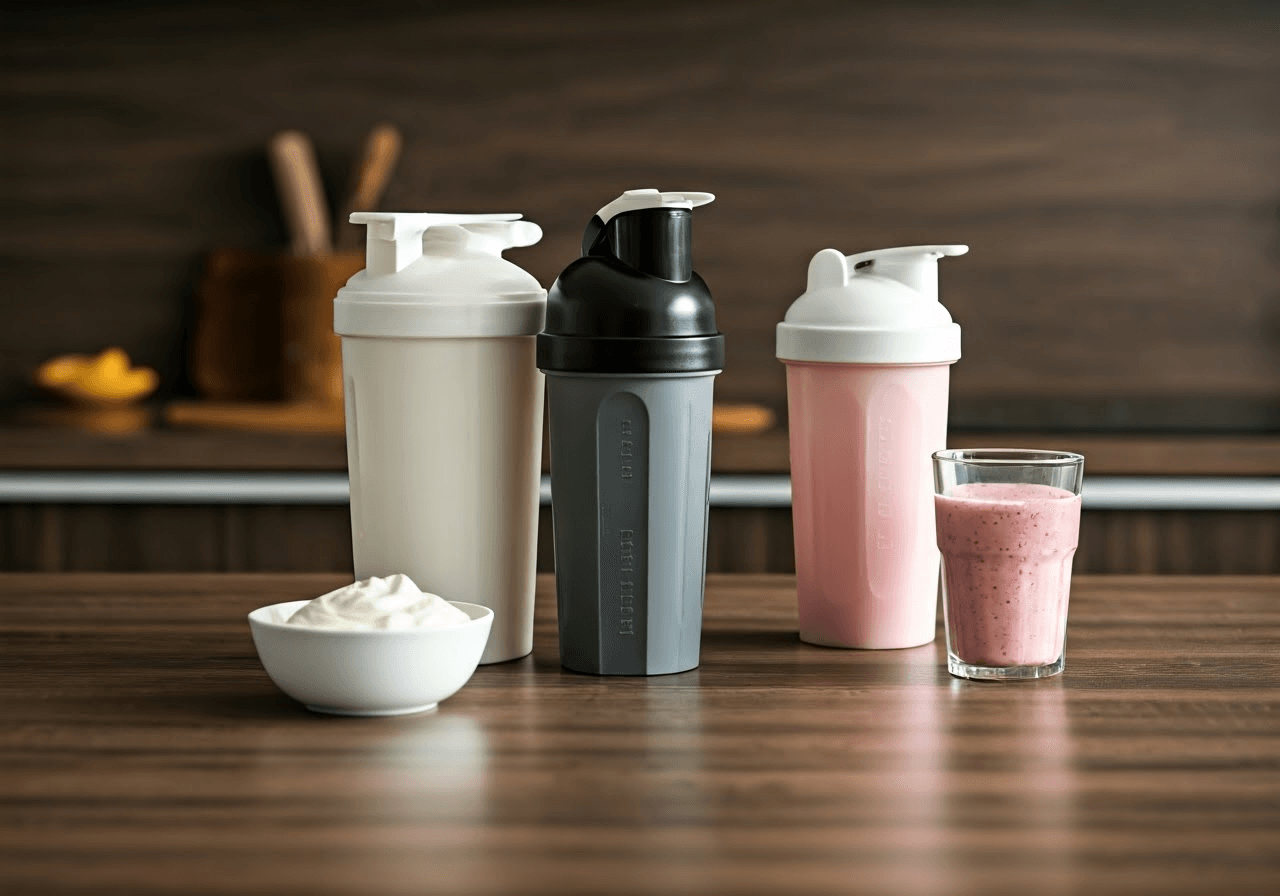
Adding protein powder to your daily routine can be easy and fun. You can mix it into a smoothie or yogurt. This will improve the taste and raise the protein content a lot. To help with muscle recovery, drink a protein shake after you work out. You can also put protein powder in baked goods or snacks. This way, you can meet your protein intake without losing flavor. Using it in different ways can help you get the most benefits from this pure protein source. It’s a key part of your nutrition plan.
How to Mix the Perfect Protein Shake (No Clumps!)
To make a smooth, clump-free protein shake, you need the right method and tools. Begin with good protein powder, like whey or plant-based. Use a blender or shaker bottle to mix it well. Start by pouring in some liquid, like water or almond milk. This helps dissolve the powder better. Then, slowly add the protein while you blend or shake hard. For a creamier shake, you can include frozen fruit or yogurt. This will add flavor and nutrients without any artificial flavors.
Easy Ways to Add Protein Powder to Meals and Snacks
Adding protein powder to your meals and snacks can be easy and tasty. You can stir a scoop into your morning oatmeal or yogurt. This not only increases the protein intake but also makes it creamy. If you need a quick energy boost, blend it into smoothies with fruits and leafy greens. Baking is another good way to use protein powder. Try adding it to muffins or pancakes for extra protein without losing flavor. By trying new recipes, you can improve your protein intake and overall nutrition.
When to Take Protein Powder: Pre-Workout, Post-Workout & Meals
Timing your protein intake is important to get the most benefits. If you want muscle growth, having a protein shake before your workout helps give you the amino acids you need. After exercising, drinking protein quickly helps with muscle recovery. It can reduce soreness and helps rebuild muscle mass. Eating snacks or meals high in protein throughout the day keeps your protein intake on track with the recommended dietary allowance based on your body weight. This plan boosts your metabolism and supports your overall health and weight management.
Protein Powder for Beginners: How to Start Right
Starting a protein powder routine should be easy and fit your needs. First, find out how much protein you need each day. This is usually about 1.6 to 2.2 grams of protein per kilogram of your body weight if you are active. Next, choose your protein type. You can use whey protein for muscle recovery or plant protein if you follow a vegan diet. Mix the protein powder into smoothies or yogurt for a quick option. Remember to keep an eye on extra sugars and preservatives. Slowly add it to your meals to boost your nutrition without changing your diet too much.
Natural Protein Alternatives: Whole Foods & DIY Options
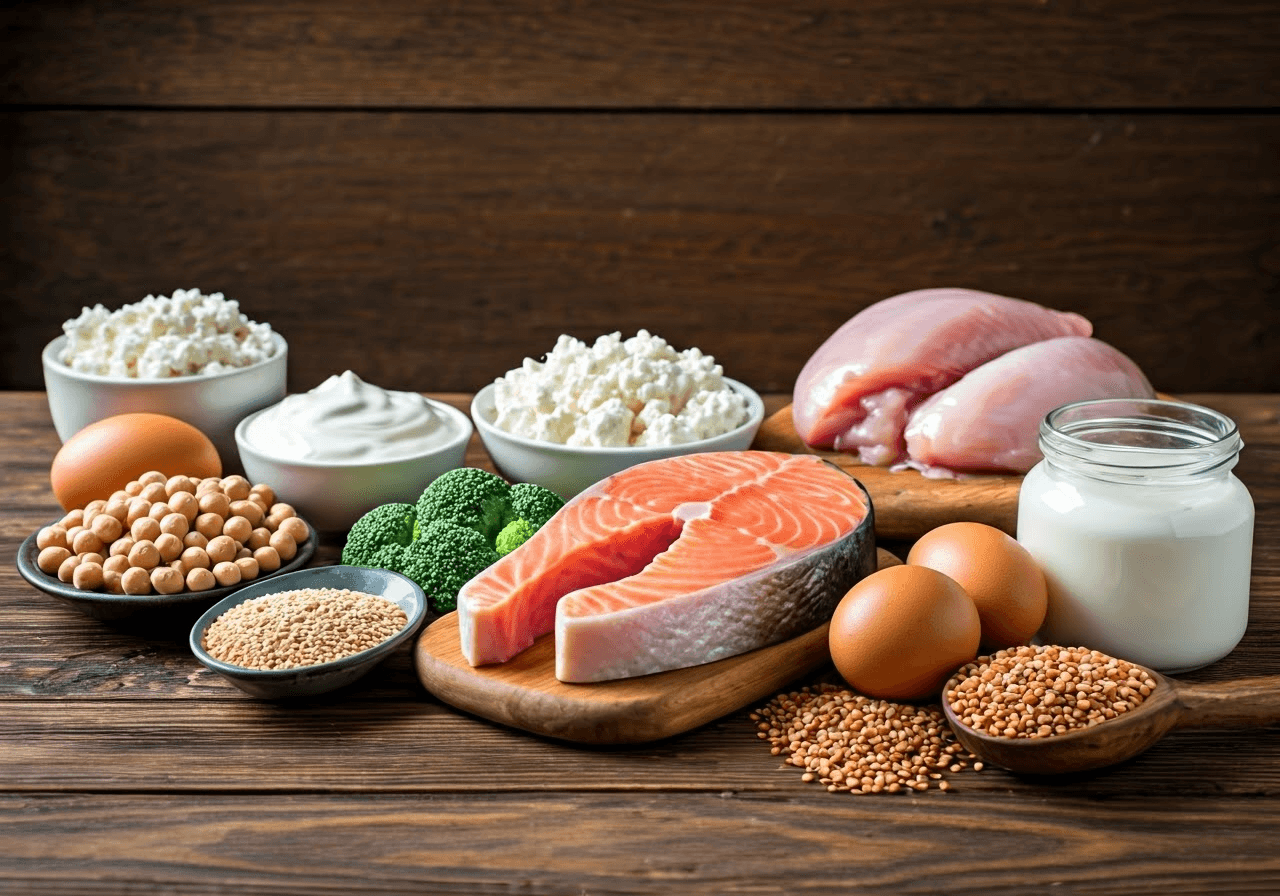
Exploring natural protein alternatives gives you many choices for your diet. Whole foods like legumes, nuts, seeds, and lean meats are great sources of protein. They provide essential amino acids and important nutrients. If you like to make things yourself, you can create your own protein powder using dried beans, quinoa, or hemp seeds. This way, you know the quality is good, and you can change the recipe to fit your taste. Plus, you can avoid additives or artificial flavors.
Natural Protein Sources: High-Protein Whole Foods List
Eating whole foods that are high in protein can really boost your protein intake and give you important nutrients. You might want to try foods like lean poultry, fatty fish, and eggs. They are full of amino acids and help with muscle growth. If you’re vegan, good options are lentils, chickpeas, and quinoa since they have protein without additives. You can also consider dairy choices like Greek yogurt and cottage cheese, as they are good for you. These whole foods help with muscle recovery and managing weight, plus they are great for your overall health.
Looking for protein without supplements? These whole foods are packed with high-quality protein — many of them complete sources — along with added benefits like fiber, calcium, and essential nutrients.
| Food | Protein per 100g | Complete Protein? | Additional Benefits |
|---|---|---|---|
| Chicken Breast (cooked) | ~31g | Yes | Lean, versatile, low in fat |
| Lentils (cooked) | ~9g | No | High in fiber, iron, heart-healthy |
| Quinoa (cooked) | ~8g | Yes | Gluten-free, contains all 9 EAAs |
| Greek Yogurt (plain, low-fat) | ~10g | Yes | Probiotics, calcium, gut-friendly |
| Tofu (firm) | ~8g | Yes | Soy-based, low-fat, rich in isoflavones |
| Eggs | ~13g | Yes | Highly bioavailable, nutrient-dense |
| Cottage Cheese (low-fat) | ~11g | Yes | Casein-rich, supports bone & muscle |
| Pumpkin Seeds | ~19g | No | High in magnesium, healthy fats |
| Almonds | ~21g | No | Vitamin E, fiber, satiety support |
How to Make Your Own Protein Powder at Home
Making your own protein powder at home can save you money and give you total control over what goes in it. Start with high-protein whole foods like peas, hemp seeds, or brown rice. Blend these ingredients until they turn into a fine powder. This makes it easy to mix. To boost flavor and nutrition, you can add nuts, seeds, or natural sweeteners like vanilla. Keep your homemade protein powder in an airtight container. This helps it stay fresh and keeps harmful moisture or toxins out.
Special Considerations When Using Protein Powder
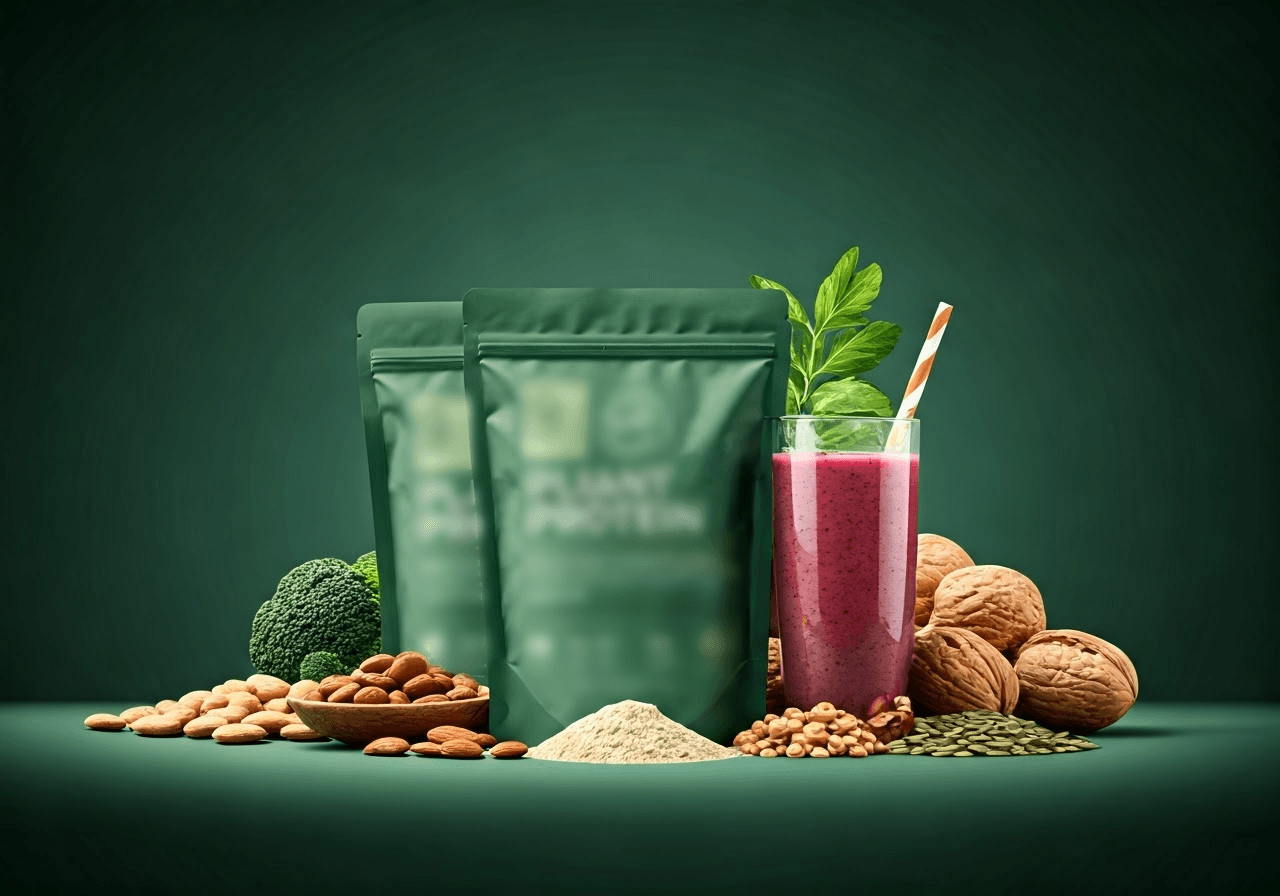
When adding protein powder to your diet, there are some important things to think about. If you are vegan or vegetarian, you can use pea protein or hemp protein. These options give you essential amino acids without using any animal products. If you have lactose intolerance, you might prefer lactose-free protein powders. This will help keep your digestion comfortable. It’s also a good idea to choose clean protein powders. They should not have heavy metals or artificial flavors to support your overall health. Talking with a registered dietitian can help you find the right protein intake to fit your needs and goals.
Best Protein Powder Options for Vegans and Vegetarians
Choosing the right protein powder is important for vegans and vegetarians who want to increase their protein intake. Pea protein powder is a great choice. It has essential amino acids and is easy to digest. Hemp protein is another good option. It provides omega-3 fatty acids and fiber, which adds nutrition. If you like a mix, look for protein powders that combine different plant sources. This helps you get a full set of amino acids. Always check for clean labels. This way, you can avoid unwanted additives and artificial flavors.
Lactose-Free Protein Powder Options and Tips
Lactose-free protein powder options are easy to find. Whey protein isolate is very popular. It goes through a process to remove most of the lactose. Plant-based proteins like pea protein and hemp protein are also great. They provide essential amino acids without any dairy. For the best nutrition, choose clean label products that do not have artificial flavors and additives. You can mix these powders into smoothies or yogurt. This will help improve the taste and give you the protein you need for muscle recovery and overall health.
Best Protein Powder for Women Over 40: What to Know
Choosing the right protein powder is very important for women over 40. This is because metabolism and muscle mass decrease with age. Look for protein that includes high-quality whey or plant protein like pea or hemp. These options have essential amino acids that help with muscle recovery. Make sure to check for clean label certifications to avoid artificial additives and heavy metals. Your protein intake should match your personal health goals and nutritional needs. This ensures you get enough protein for overall health and to lessen the effects of aging.
Clean Protein Powders Without Heavy Metals: Safe Choices
Choosing clean protein powders is important for your safety and health. Look for brands that have the Clean Label Project certification. This project tests for harmful things like heavy metals, pesticides, and artificial additives. Choose options that use high-quality, pure protein sources such as pea, hemp, or whey. Make sure they do not contain gluten or lactose. Always read the label to understand the ingredients. This care helps with muscle recovery and growth as well as your overall well-being. Make informed choices to focus on your health.
Debunking Protein Powder Myths and Misconceptions
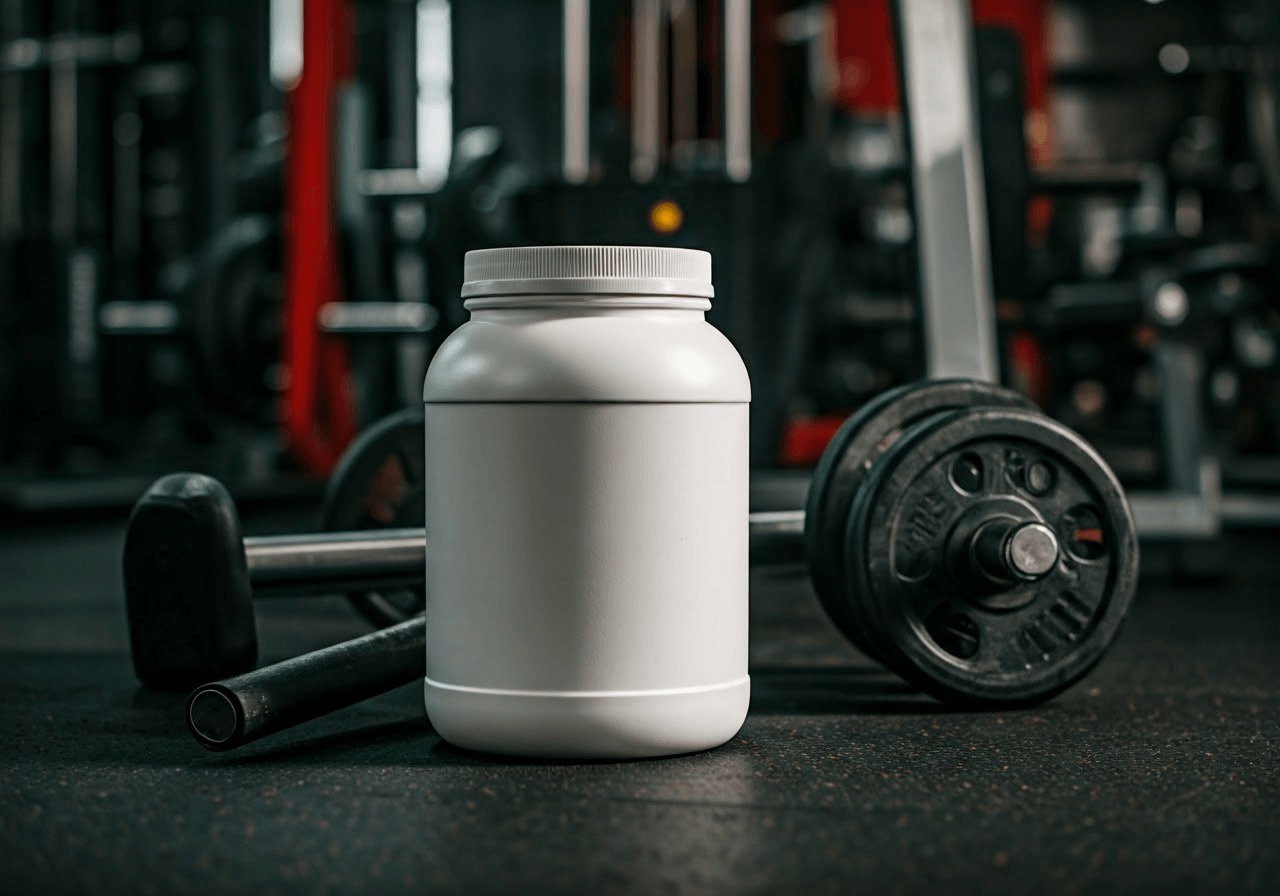
Misunderstandings about protein powder can cause confusion. Many people think these supplements are only for bodybuilders. However, they can help anyone who wants to recover muscles and improve health. Another myth is that eating more protein always means building more muscle. What really matters is the quality and timing of protein intake. Lastly, plant-based proteins can be just as good as animal proteins. They offer essential amino acids and support different dietary needs.
Myth: Protein Powder Is Only for Bodybuilders
Many think protein powder is only for bodybuilders, but this is not true. Protein powder can help everyone. People who exercise, want to lose weight, or are recovering can use protein supplements to get the nutrition they need. There are different types, like pea protein and whey protein. They provide essential amino acids that help with muscle growth and overall health, no matter how hard you work out. Using protein powders can improve your diet. It can make it easier for anyone to increase protein intake and support their fitness goals.
Myth: More Protein Means More Muscle Gains
Eating a lot of protein does not mean you will build more muscle. It is important to have enough protein for muscle recovery and growth. However, your body can only use so much protein effectively. Studies show that getting about 1.6 to 2.2 grams of protein for every kilogram of body weight works best for most people, depending on how active they are. If you eat more than this, it may not help grow muscle. Instead, it could harm your kidneys and raise health risks. So, finding a good balance is important for developing muscle in a healthy way.
Myth: Plant-Based Protein Is Less Effective Than Animal Protein
Many people think that plant-based protein is not as good as animal protein. However, this idea is not true. Some plant proteins, like pea and hemp, have essential amino acids that help with muscle recovery and growth. Studies show that when you mix plant proteins the right way, they meet the body’s needs just like whey protein does. Plus, they have added benefits like reducing inflammation and improving overall health. They do this without the risks of heavy metals found in some animal protein sources.
Conclusion
Adding protein powder to your daily life can bring important benefits. It can help with muscle growth, assist in weight loss, and support overall health. There are different types, like whey and plant protein. Choosing the one that fits your diet is very important. When you know how much protein you need, you can combine supplements with healthy foods better. As you explore protein powders, staying informed can help you make the right choices for your fitness and health goals.
The content on WellwayHub.com is intended for general informational purposes only and should not be taken as medical advice. Please consult your doctor or a qualified health professional before making any changes to your health routine.
Some links on WellwayHub.com may be affiliate links. This means we may earn a small commission if you make a purchase through these links, at no extra cost to you. This helps support our mission to provide trusted wellness content.
Frequently Asked Questions
Protein powder is a supplement people use to get more protein. It comes from different sources, such as whey, casein, or plants. The protein is taken from these sources and dried into a fine powder. This way, it keeps important nutrients and gives a strong protein source for different diet needs.
There are many types of protein powders. These include whey, casein, soy, pea, and rice. Each kind has different levels of amino acids, how easy they are to digest, and how well they fit into different diets. Choosing the right protein powder depends on your personal diet needs, any allergies you have, and your fitness goals.
When choosing between whey and plant-based protein powder, think about what you prefer to eat, how well your body digests it, and what nutrients you need. Whey protein absorbs quickly and is packed with essential amino acids. On the other hand, plant-based options are great for vegans or anyone who cannot have lactose. Pick the one that fits your fitness goals.
Most people can usually take protein powder every day if they follow the suggested serving sizes. However, those with certain health issues or special diets should talk to a healthcare professional before using protein supplements regularly. It’s important to focus on whole food sources for a balanced diet.
To find out how much protein powder you should take each day, think about your activity level, fitness goals, and dietary needs. Usually, 1-2 scoops give enough protein for gaining muscle or recovery. If you aim for weight loss, you might need to adjust the portion sizes to help with appetite control.
Taking protein powder after a workout is often seen as the best time for good muscle recovery and growth. But having it before your workout can help if you need extra energy during exercise. In the end, the best time to take protein depends on what your fitness goals are and your daily routine.
Yes, protein powder can help with weight loss and meal replacement. It has a lot of protein, which keeps you feeling full. It also helps you keep your muscle mass when you eat fewer calories. Plus, it’s a convenient way to get nutrition when you’re busy. Pick a low-calorie choice to get the most benefits while watching your intake.
Protein powder has many health benefits. It helps build muscles and can improve recovery time. It also supports weight management and healthy aging. Additionally, protein powder may help control your appetite and strengthen your immune system. Adding it to your diet can effectively meet your nutritional needs.
Taking protein powder can lead to some side effects. These can include stomach problems, hard work for the kidneys, and a lack of nutrients if you use too much. People who have allergies or certain health issues should talk to a doctor before adding protein supplements to their diet. It’s important to use these products in moderation for safe use.
Protein powder can help many people, but it’s important to be careful. This is especially true for kids, pregnant women, and those who have kidney problems. It’s a good idea to talk to a healthcare professional. They can help you understand your needs and keep you safe while making sure you get the nutrients you need.
For beginners, the best protein powder is one that fits your diet and fitness goals. If you want something that absorbs quickly, whey is a great option. If you follow a vegan diet, plant-based proteins work well. It’s important to choose high-quality powders with few ingredients to get the best results.
Yes, there are many protein powders that do not have artificial sweeteners or additives. You can find options that are marked as “clean” or “natural.” Always read the ingredient list to make sure it matches your diet for a healthier protein choice.
The top protein powder for women over 40 should have low sugar. It should be high in essential amino acids. Look for powders that include calcium and vitamin D too. Choices like whey or plant-based mixes can help with muscle health. They can also aid with weight management and support overall wellness as we age.
Yes, there are many protein powders made for lactose-intolerant people and vegans. Plant-based proteins such as pea, hemp, and brown rice are great options that do not contain dairy. Make sure to read the labels for any allergens and confirm they fit your diet.
Yes, there are natural choices for protein instead of protein powder supplements. These choices include whole foods that are high in protein, like eggs, chicken, fish, legumes, nuts, and dairy. Adding these foods to your meals can give you important nutrients without needing processed supplements.